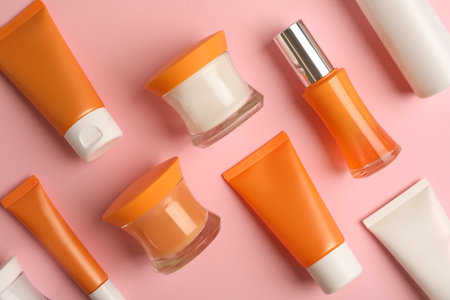Introduction: Why Sunscreen is a Must-Have in the UK
When it comes to skincare, sunscreen is often overlooked in the UK, with many believing that our famously grey skies and unpredictable weather mean UV protection isn’t necessary. However, this couldn’t be further from the truth. British dermatologists and skincare experts are increasingly vocal about the year-round need for facial sunscreen—even on cloudy or rainy days. The reality is that up to 80% of UV rays can penetrate through clouds, and UVA rays (responsible for premature ageing and skin damage) are present all day, every day, no matter how gloomy it looks outside. This growing awareness has led to a surge in expert-recommended sunscreens tailored to suit diverse skin types and preferences across the UK. In this guide, we’ll delve into the top 10 facial sunscreens loved by UK skincare specialists—formulas that combine reliable protection with textures and ingredients perfect for British lifestyles. Whether you’re heading out for a brisk walk in Hyde Park or simply commuting to work, daily SPF is now considered as fundamental as your morning cuppa.
2. What British Skincare Experts Look for in a Sunscreen
When it comes to facial sunscreens, UK skincare experts are discerning and demand more than just basic sun protection. The unique British climate—a blend of overcast days, sudden sunny spells, and occasional harsh winds—means that an ideal sunscreen must tick several boxes. Let’s break down the key ingredients and properties that are most valued by experts across the UK.
Broad-Spectrum Protection: A Non-Negotiable
British dermatologists consistently emphasise the importance of broad-spectrum coverage. This means a sunscreen should protect against both UVA (ageing) and UVB (burning) rays, which are present even on cloudy days typical of the UK. Look for products labelled “broad-spectrum” or those with high UVA star ratings—a system widely used in Britain to indicate effective UVA defence.
Comfortable Textures for Daily Wear
Comfort is key for daily use. Many people in the UK prefer lightweight, non-greasy formulas that layer seamlessly under makeup or sit comfortably on bare skin. Modern formulations often use advanced silicones or gel-based carriers to ensure an invisible finish—no chalky white cast here!
Suitability for Sensitive British Skin
The unpredictable weather can leave skin sensitised, so gentle formulations rank high among expert preferences. Fragrance-free and hypoallergenic options are particularly popular, as they minimise irritation and suit a wide range of skin types from oily to dry. Mineral-based sunscreens containing zinc oxide or titanium dioxide are also favoured for their mildness.
Top Ingredients & Properties at a Glance
| Feature | Why Experts Value It | Common Ingredients |
|---|---|---|
| Broad-Spectrum Protection | Shields from both UVA and UVB rays essential in variable UK weather | Avobenzone, Tinosorb S/M, Zinc Oxide, Titanium Dioxide |
| Sensitive-Skin Friendly | Prevents irritation on delicate or reactive complexions | Zinc Oxide, Titanium Dioxide, Glycerin, Niacinamide |
| Lightweight Texture | Ensures comfort for everyday application under makeup or alone | Silicone derivatives (e.g., Dimethicone), Gel matrices, Water-based carriers |
| Photostability | Keeps protection reliable throughout prolonged exposure | Tinosorb S/M, Mexoryl SX/XL, Encapsulated filters |
| Addition of Antioxidants | Helps combat pollution-related oxidative stress common in urban UK environments | Vitamin E, Green Tea Extract, Ferulic Acid |
The Takeaway: British Sunscreen Standards Are High—and Justifiably So!
The best facial sunscreens in the UK aren’t chosen on SPF number alone. Experts look for formulas that combine robust protection with elegant textures and gentle ingredients tailored to the local climate and skin concerns. In the following sections, we’ll reveal which top 10 products deliver on all these fronts according to leading British skincare specialists.

3. The Impact of UK Weather: Choosing the Right SPF for British Skin
When it comes to facial sunscreens, understanding the unique demands of British weather is crucial for making informed choices. Unlike tropical climates with intense, year-round sunshine, the UK is notorious for its unpredictable mix of overcast skies, drizzle, and rare bursts of strong sun. This variability means that British skincare experts tend to recommend facial sunscreens that balance high protection with daily practicality.
SPF Ratings: Not Just for Holidays Abroad
It’s a common misconception in the UK that sunscreen is only necessary on summer holidays or during heatwaves. However, up to 80% of UV rays can penetrate clouds, meaning your skin is still at risk even on those classic grey days. For everyday use, dermatologists and beauty insiders suggest an SPF of at least 30 for reliable defence against incidental sun exposure. When choosing from the top 10 facial sunscreens, look for products that clearly display their SPF rating and offer broad-spectrum coverage.
UVA/UVB Balance: All-Round Protection for British Complexions
British skin often faces both UVA (ageing) and UVB (burning) rays throughout the year. The best facial sunscreens loved by UK skincare experts go beyond just SPF numbers—they also carry a high UVA star rating or PA grading system. These indicate robust protection against long-term damage such as pigmentation and premature wrinkles, which can occur even on cloudy days. Opting for a product with balanced UVA and UVB filters ensures all-round protection tailored to the British climate.
Everyday Practicality: Texture and Wearability Matter
Given the UK’s humid spells, rain showers, and indoor-outdoor lifestyle, practicality is key. Lightweight, non-greasy formulas that layer well under makeup are especially popular among British users and skincare professionals alike. Many of the top 10 recommended facial sunscreens offer mattifying or hydrating finishes to suit different skin types—whether you’re cycling through London drizzle or enjoying a rare sunny afternoon in the park. Ultimately, a sunscreen you love to wear every day is one you’ll actually use, making it an essential part of any UK skincare routine.
4. The Role of Texture and Finish in Everyday Use
When it comes to facial sunscreens, texture and finish are essential factors that UK skincare experts consider before making recommendations. In the British climate—where weather can shift from damp drizzle to bright sunshine within hours—formulas must be adaptable, comfortable, and unobtrusive. For many, a sunscreens wearability is just as crucial as its SPF rating.
Why Lightweight, Non-Greasy Formulas Matter
British skincare specialists emphasise lightweight and non-greasy textures for daily use. These formulas not only feel more comfortable on the skin but also help prevent clogged pores and excess shine, which is particularly important for those with combination or oily skin types prevalent in the UK. The demand for mattifying, fast-absorbing finishes has grown significantly, especially among city dwellers who layer sunscreen under makeup.
Sunscreen Finish vs. Lifestyle Compatibility
| Finish Type | Main Benefits | Best For |
|---|---|---|
| Matte | Controls shine, ideal under makeup | Oily/Combination Skin, Urban Professionals |
| Dewy | Hydrates and imparts glow | Dry/Mature Skin, Minimal Makeup Wearers |
| Satin/Invisible | Natural look, suits all skin types | Everyday Use, All Skin Types |
Adaptation to British Routines
Sunscreens that blend seamlessly into daily routines are top choices for UK experts. Busy mornings call for products that apply quickly and don’t leave a white cast—a particular concern for those with deeper skin tones. Most of the top 10 facial sunscreens recommended by UK professionals offer invisible or satin finishes that neither pill nor interfere with foundation or tinted moisturisers.
Formulation Ingredients That Support Wearability
Bestselling sunscreens often include ingredients like silica or dimethicone to enhance slip and longevity on the skin without heaviness. Additionally, hydrating agents such as glycerin or hyaluronic acid maintain moisture levels without adding greasiness—an advantage during both chilly winds and warmer summer spells typical of the British Isles.
The right texture ensures sunscreen becomes a consistent habit rather than an afterthought. By prioritising comfort and compatibility with local lifestyles, UK skincare experts make sun protection accessible and appealing for everyone, whatever their routine or skin type.
5. Tips from UK Skincare Experts for Optimal Sunscreen Application
Applying facial sunscreen correctly is just as crucial as choosing the right formula. British skincare specialists emphasise that even the best-rated products from our Top 10 Facial Sunscreens Loved by UK Skincare Experts list can only deliver their promised protection if used properly. Here’s how to get the most out of your SPF, according to leading UK dermatologists and estheticians.
How Much Sunscreen Should You Use?
One of the most common mistakes Brits make is underapplying sunscreen. Experts recommend using at least a teaspoon of sunscreen for your face, neck, and ears combined. If you’re using a fluid or gel formula, aim for roughly two finger lengths of product. This ensures you achieve the SPF rating shown on the bottle, whether you’ve chosen a lightweight gel like La Roche-Posay Anthelios or a nourishing cream such as CeraVe Facial Moisturising Lotion SPF50.
How Often Should You Reapply?
UK specialists stress that reapplication is essential—even on cloudy days. The general rule is to reapply every two hours, especially if you are outdoors or have been sweating. For those spending time in the office or working from home, a midday top-up is still recommended, particularly if you sit near windows where UVA rays can penetrate. If you wear makeup, opt for a misting spray SPF or use a sponge to gently pat additional sunscreen over your foundation without disturbing your look.
Making Sunscreen Part of Your Everyday Routine
The easiest way to ensure consistent protection is to integrate sunscreen into your morning skincare routine. Apply it as the final step after your moisturiser but before makeup. Many of our top 10 picks are designed with this in mind—think light textures that absorb quickly and won’t pill under foundation, such as Eucerin Oil Control Sun Gel-Cream or Garnier Ambre Solaire Anti-Dryness Face Protection Mist.
Cultural Tips from British Experts
British weather can be unpredictable, but UV rays are present all year round. Local experts remind us that sun protection isn’t just for heatwaves or summer holidays—it’s an everyday essential, rain or shine. Stash a travel-sized tube in your bag or keep one at your desk to make reapplication effortless throughout the day.
Your Expert-Approved SPF Routine
For optimal results with any product from our “Top 10 Facial Sunscreens Loved by UK Skincare Experts,” remember: apply generously, reapply regularly, and treat sunscreen as non-negotiable—just like brushing your teeth. Your skin will thank you in years to come.
6. Conclusion: Elevate Your Skincare Routine with the Right Facial Sunscreen
Choosing the best facial sunscreen is more than just a summer skincare step—its an essential investment in your skins long-term health, whatever the British weather brings. As highlighted in our selection of the top 10 facial sunscreens loved by UK skincare experts, the right formula can protect against premature ageing, pigmentation, and even serious conditions like skin cancer. Whether you prefer mineral or chemical filters, lightweight gels or nourishing creams, prioritising broad-spectrum SPF and ingredients that suit your unique skin type is key. Remember, daily sun protection isnt just for sunny days; UVA rays penetrate clouds and windows all year round. By making sunscreen a non-negotiable part of your morning routine, youre taking a proactive step towards radiant, resilient skin for years to come. Commit to this simple habit and let your complexion thank you—because in the world of skincare, prevention truly is better than cure.


